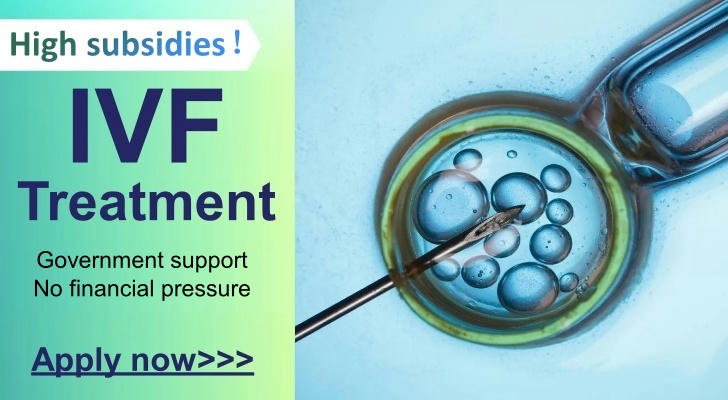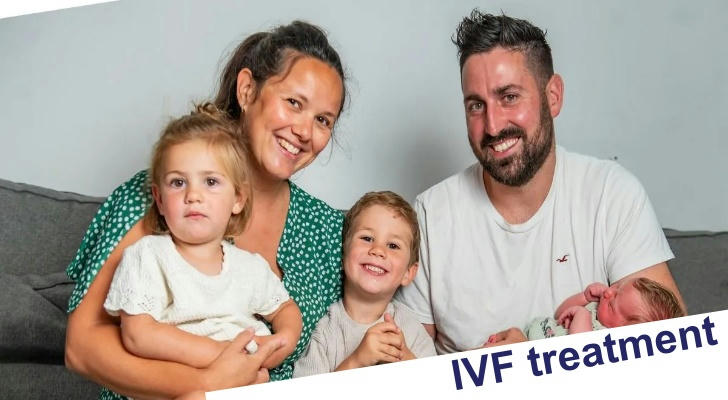Government-Supported IVF Treatment Programs Are Highly Subsidized!
Government-supported IVF programs provide hope for individuals and couples facing infertility by offering financial assistance for in-vitro fertilization (IVF) treatments. These state-backed initiatives make fertility care accessible, often covering costs for eligible applicants without requiring prior medical history.
Key Fact: Government-supported IVF programs can cover the majority of treatment costs for eligible individuals, providing them with a way to have a child without the financial stress.

👶 Why Choose Government-Supported IVF Programs?
These programs offer affordability and compassionate care, partnering with accredited fertility clinics to deliver high-quality IVF treatments. Eligible applicants benefit from state or federal funding, grants, or subsidies, reducing financial barriers. No prior fertility treatment is required, making it an accessible option for aspiring parents seeking to build their families.
- • Cost Coverage: Provides the majority of funding for the IVF cycle, including medications and procedures.
- • Accessible Care: Open to diverse applicants, particularly those with financial need.
- • Expert Clinics: Partnered with accredited fertility centers for safe, effective care.
- • Comprehensive Support: Access counseling and guidance throughout the IVF journey.
- • Community Impact: Empower families to achieve parenthood with state-backed support.
💰 Financial Support for IVF
Government programs provide grants, subsidies, or substantial reimbursement for IVF treatment, ensuring that eligible participants have access to treatment. Below is an overview of potential financial support structures.
| Program Type | Support Level | Eligibility |
|---|---|---|
| State-Funded IVF Grants | Most of the treatment costs | Income-based, residency requirements |
| Federal Subsidies | Partial coverage ($5,000-$15,000) | Medical diagnosis, age limits |
| Nonprofit Partnerships | Varies by program | Specific criteria (e.g., military families) |
📚 Who Can Apply?
Ideal candidates are individuals or couples facing infertility, with financial need or specific eligibility criteria. Select an applicant group for details:
Young Adults (18-30)
Young people diagnosed with fertility problems may be eligible for government-funded in vitro fertilization (IVF) programs. Applicants will need to provide proof of medical necessity and may face income criteria. These programs offer high levels of financial assistance to support early family planning.
Adults (30-40)
Adults aged 30-40 are eligible for most IVF funding programs. Requirements include a medical diagnosis of infertility and residency in a participating state. No prior IVF attempts are necessary, ideal for those seeking state-backed support.
Middle Aged (41+)
Individuals aged 41 and older may qualify for specialized programs, often with stricter medical criteria. Candidates must demonstrate financial need and treatment viability. Government support facilitates access to fertility care later in life.
⏰ Application Process
The application process for government-supported IVF programs is straightforward, typically involving consultation, eligibility verification, and treatment planning. Programs operate year-round, with some requiring applications by specific deadlines.
- Initial Consultation: Meet with a fertility specialist to assess eligibility (1-2 weeks).
- Application Submission: Provide medical and financial documentation (2-4 weeks for review).
- Treatment Planning: Begin IVF cycles upon approval, with funding applied directly.
🌟 Success Stories
Participants in government-supported IVF programs have achieved parenthood despite financial barriers, with success rates comparable to private clinics.
Sarah, a 35-year-old teacher, participated in a government-supported IVF program. After years of struggling with infertility, she finally welcomed twins in 2024, thanks to a government reimbursement policy for treatment costs. Sarah is currently working to obtain fertility funding and encourages others to seek government support.
🔍 Explore Related IVF Funding Opportunities
Search for terms like "government-supported IVF near me" to find local programs, "IVF grants for low-income families" for financial aid, or "state-supported fertility treatments" to uncover additional options tailored to your needs.

❓ Common Questions About Government-Supported IVF
Many prospective parents ask: “How can I access IVF treatment without incurring significant financial stress?” This section will answer key questions and guide you through government-supported IVF programs.
- • Who qualifies for government-subsidized IVF? Eligibility varies by program but often includes income and medical criteria.
- • How long does the IVF process take? From application to treatment, expect 2-6 months.
- • Are success rates guaranteed? No, but accredited clinics offer competitive success rates.
🛠️ How to Apply for Government-Supported IVF
Ready to start your journey? Follow these steps to learn about government-subsidized IVF programs. No fertility treatment is required, just determination and the right documentation.
- • Step 1: Research Identify programs in your state by December 31, 2025.
- • Step 2: Apply Submit medical and financial documents to verify eligibility.
- • Step 3: Treat Begin IVF cycles with funding applied directly to treatments.
🧱 Apply Today to Start Your Journey to Parenthood
Government-funded IVF programs offer a new opportunity to become parents without the financial stress. These government-backed programs empower individuals and couples by providing adequate funding, expert care and a clear application process. Apply now and take the first step.
Useful Links:
Apply Now